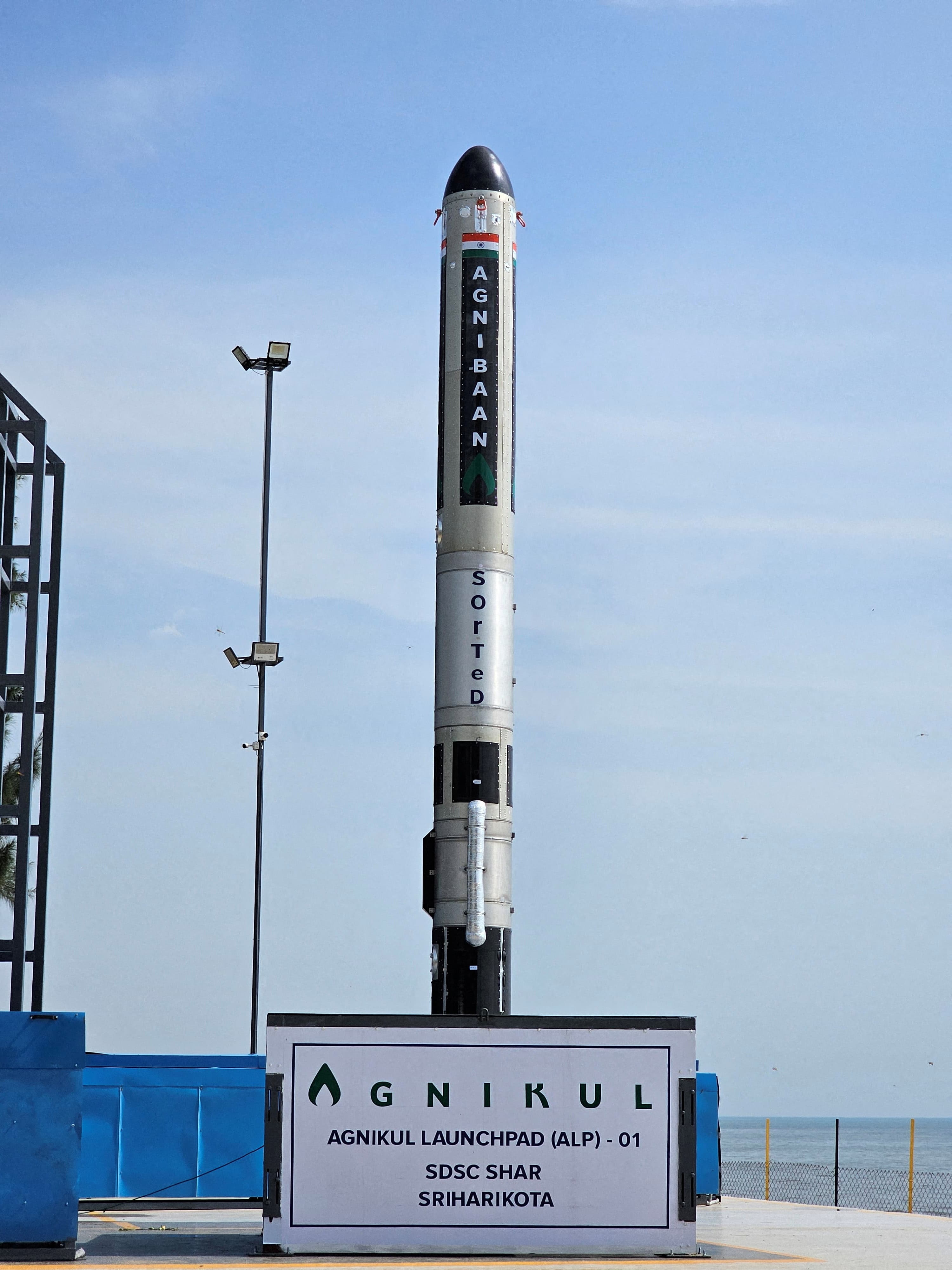Agnikul Cosmos: 10 Key Things You Must Know

Overview
Agnikul Cosmos is a pioneering Indian private aerospace manufacturer and commercial space launch service provider based in Chennai, India. Founded in 2017 by a group of IIT Madras alumni, Agnikul has rapidly emerged as a key player in the country’s burgeoning space startup ecosystem. The company is internationally recognized for its innovative approach, notably the development of the world’s first single-piece 3D-printed rocket engine and its commitment to transforming small satellite launches with fully customizable, reusable launch vehicles. As India expands its space ambitions, Agnikul Cosmos is leading the charge to make affordable, flexible, and accessible space launches a reality.
1. Founding and Mission
Founded in December 2017 by Srinath Ravichandran, Moin SPM, Satyanarayanan Chakravarthy, and Janardhana Raju, Agnikul Cosmos originated within the National Centre for Combustion Research and Development at IIT Madras. The startup’s core mission is to enable on-demand, cost-effective access to space by building small-lift launch vehicles tailored for micro and nanosatellites. Starting with modest seed funding, the founders quickly raised substantial capital and have garnered government support from ISRO and the Department of Space, underpinning their technical and strategic growth.
2. Breakthrough in Rocket Engine Technology
Agnikul Cosmos made headlines with the development of Agnilet, the world’s first single-piece, 3D-printed semi-cryogenic rocket engine. This engine, fully manufactured without assembled parts, employs electric motor-driven pumps to circulate liquid oxygen and refined kerosene. This innovative design enhances reliability, manufacturability, and cost-efficiency, marking a significant technological advance in aerospace propulsion systems globally. The engine has successfully undergone multiple test firings, validating its performance and paving the way for operational launches.
3. The Agnibaan Launch Vehicle
Central to Agnikul’s portfolio is the Agnibaan, a customizable two-stage small-lift launch vehicle designed to place payloads of up to 100 kilograms into 700-kilometer low Earth orbits. Measuring approximately 18 meters in length and utilizing cluster engine configurations, Agnibaan uses eco-friendly propellants and cutting-edge semi-cryogenic propulsion technology. The vehicle’s adaptability allows customers to specify launch parameters, empowering a versatile approach to satellite deployment.
4. Historic Milestones and Test Launches
On 30 May 2024, Agnikul Cosmos achieved a landmark with the successful suborbital test flight of their Agnibaan SOrTeD (Suborbital Technology Demonstrator) rocket. This mission was India’s first semi-cryogenic engine launch and marked the country’s inaugural launch from a private launch pad. The flight demonstrated the reliability of their 3D-printed engine and validated key flight systems, establishing Agnikul as a trailblazer in India's private space sector.
5. India’s First Private Launchpad and Mission Control
In November 2022, Agnikul inaugurated India’s first private launch pad and mission control center at the Satish Dhawan Space Centre in Sriharikota. These facilities, located 4 kilometers apart, are designed to support liquid-fueled launch vehicles and operate with a high degree of redundancy and safety protocols. This milestone has opened new avenues for private sector participation in Indian space launches and provides Agnikul with the capability to conduct independent missions domestically.
6. Commitment to Rocket Reusability
Agnikul Cosmos is at the forefront of India's reusable rocket technology efforts. Announced at the International Astronautical Congress (IAC) 2025, the company unveiled plans for fully reusable launch vehicles akin to SpaceX’s Falcon 9. Their patented technologies and semi-cryogenic propulsion systems aim to recover and reuse rocket boosters, reducing launch costs substantially. This approach aligns with global trends toward sustainable and economical spaceflight.
7. Advanced Additive Manufacturing Facility
In 2025, Agnikul commissioned India’s first large-format additive manufacturing facility dedicated to aerospace and rocket systems. This advanced plant facilitates 3D printing of large rocket components up to one meter in size, capable of producing engines delivering seven times greater thrust than previous designs. Bringing the entire manufacturing process—from design to finishing—in-house accelerates innovation cycles and enhances supply chain resilience.
8. Funding and Investor Support
Since its inception, Agnikul has raised over $45 million across multiple funding rounds, including a $26.7 million Series B in 2023 and subsequent Series C1 funding in 2025. The firm boasts a growing employee base of approximately 250 engineers and specialists. Investments from notable business figures like Anand Mahindra and venture capital firms underscore confidence in Agnikul’s vision and technological prowess.
9. Collaborative Ecosystem and Government Partnerships
Agnikul benefits from strategic collaborations with ISRO, IN-SPACe (Indian National Space Promotion and Authorisation Centre), and other industry players. A significant framework agreement with the Department of Space grants Agnikul access to ISRO facilities and expertise, accelerating development. Moreover, collaborations with aerospace manufacturers and satellite firms aim to build India’s first constellation of Earth observation satellites, reinforcing the company’s role in a broader space ecosystem.
10. Future Prospects and Vision
Looking ahead, Agnikul Cosmos is focused on refining its launch vehicle technologies with the goal of conducting its first orbital launch within 2025–2026. The company is intensifying efforts to perfect multi-engine firing, stage separation, and booster recovery systems that are pivotal for reusable rocket operations. Its tagline, “Launch anywhere, anytime, affordably,” reflects an ambition to democratize space access, positioning Agnikul to play a critical role in the global small satellite launch market.
Conclusion
Agnikul Cosmos exemplifies the dynamism of India’s emerging private space industry, combining homegrown innovation with international competitiveness. From breakthroughs in 3D-printed rocket engines to pioneering fully reusable launch vehicles, the company is redefining affordable and flexible satellite launches. As it continues to scale, agnikul’s advances promise to strengthen India’s position in the global space landscape, fuel economic growth, and inspire new frontiers of exploration. How Agnikul’s journey shapes the future of space accessibility remains a compelling narrative in humanity’s quest for the stars.
References
- Agnikul Cosmos - Wikipedia
- Agnikul.in Official Website
- India Today: Agnikul Cosmos and Reusable Rockets
- Business Standard: Agnikul Cosmos Commits to Full Rocket Reusability
- TechCircle: Agnikul Cosmos 3D Printing Facility
- India Today: Agnikul Cosmos Test Fires Rocket Engine
- Pitchbook: Agnikul Cosmos Funding and Profile
- The Hindu: Agnikul’s 3D-Printed Rocket Engine Test
- The Telegraph: Agnikul Cosmos Launch Plans
- StartupNews.fyi: Agnikul Raises Fresh Funding